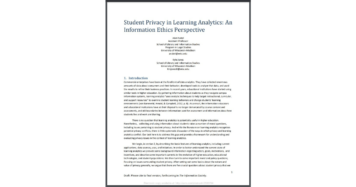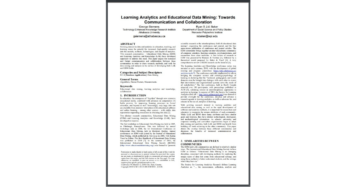Educators and commenters who evaluate big data-driven learning environments focus on specific questions: whether automated education platforms improve learning outcomes, invade student privacy, and promote equality. This article puts aside separate unresolved—and perhaps unresolvable—issues regarding the concrete effects of specific technologies. It instead examines how big data-driven tools alter the structure of schools’ pedagogical decision-making, and, in doing so, change fundamental aspects of America’s education enterprise. Technological mediation and data-driven decision-making have a particularly significant impact in learning environments because the education process primarily consists of dynamic information exchange. In this overview, I highlight three significant structural shifts that accompany school reliance on data-driven instructional platforms that perform core school functions: teaching, assessment, and credentialing. First, virtual learning environments create information technology infrastructures featuring constant data collection, continuous algorithmic assessment, and possibly infinite record retention. This undermines the traditional intellectual privacy and safety of classrooms. Second, these systems displace pedagogical decision-making from educators serving public interests to private, often for-profit, technology providers. They constrain teachers’ academic autonomy, obscure student evaluation, and reduce parents’ and students’ ability to participate or challenge education decision-making. Third, big data-driven tools define what “counts” as education by mapping the concepts, creating the content, determining the metrics, and setting desired learning outcomes of instruction. These shifts cede important decision-making to private entities without public scrutiny or pedagogical examination. In contrast to the public and heated debates that accompany textbook choices, schools often adopt education technologies ad hoc. Given education’s crucial impact on individual and collective success, educators and policymakers must consider the implications of data-driven education proactively and explicitly.





